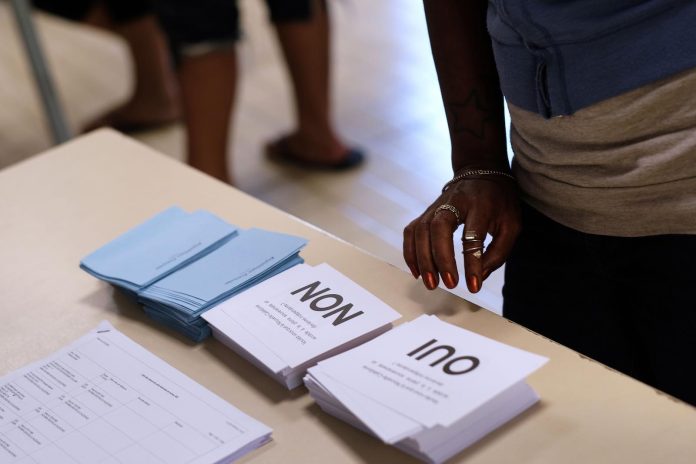
The Pacific territory of New Caledonia goes to the polls on Sunday for a third and final referendum on independence from France with campaigning marked by angry demands to call off the vote because of the Covid pandemic.
The territory, some 2,000 kilometres (1,250 miles) east of Australia, was allowed three independence referendums under a 1988 deal aimed at easing tensions on the island group.
Having rejected a breakaway from their French former colonial masters in 2018 and then again last year, the territory’s 185,000 voters will be asked one last time: “Do you want New Caledonia to accede to full sovereignty and become independent?”
The vote comes against the backdrop of increasingly strained ties between Paris and its allies in the region.
France regards itself as a major Indo-Pacific power thanks to overseas territories like New Caledonia.
Australia infuriated France in September by ditching a submarine contract in favour of a security pact with Britain and the United States.
Behind the recent spat looms China’s growing role in the region, with experts suspecting that an independent New Caledonia could be more amenable to Beijing’s advances, which are partly motivated by an interest in the territory’s mining industry.
China is already the biggest single client for New Caledonia’s metal exports, especially for nickel.
“If the French safeguard disappears, all elements would be in place for China to establish itself permanently in New Caledonia,” said Bastien Vandendyck, an international relations analyst specialising in the Pacific.
Other nations in the Melanesia region, which also includes Fiji, Vanuatu, the Solomon Islands and Papua New Guinea, had already become “Chinese satellites”, Vandendyck told AFP.
“All China needs now to complete its pearl necklace on Australia’s doorstep is New Caledonia,” he said.
Pro-independence campaigners are boycotting Sunday’s vote, saying they want it postponed to September because “a fair campaign” is not possible while coronavirus infection numbers are high.
New Caledonia’s 270,000 inhabitants were largely spared Covid infections during the first phase of the global pandemic, but have suffered close to 300 Covid deaths since the appearance of the Delta variant in recent months.
The French government has rejected the demand, saying the virus spread had slowed down with the infection rate down to a relatively modest 80 to 100 cases per 100,000 people.
The pro-independence movement has still threatened non-recognition of the referendum outcome, and vowed to appeal to the United Nations to get it cancelled.
The French minister in charge of overseas territories, Sebastien Lecornu, said that while it was “a democratic right” to refuse to vote, the boycott would make no difference to the referendum’s “legal validity.”
The pro-French camp, meanwhile, has called on its supporters to turn out in numbers, fearing that the boycott by the pro-independence parties may prompt them to stay at home since victory may look like a foregone conclusion.
“It is important that the mobilisation of the no-independence supporters remains absolute, to show that they are in a majority and united in their wish for New Caledonia to remain part of the French Republic,” Thierry Santa, president of the conservative Rassemblement-LR party, wrote in a letter to voters.
In June, the various political parties agreed with the French government that Sunday’s referendum, whatever its outcome, should lead to “a period of stability and convergence” and be followed by a new referendum by June 2023 which would decide on the “project” that New Caledonia’s people want to pursue.
But hopes for a smooth transition were jolted when the main indigenous pro-independence movement, the FLNKS, deemed the government’s insistence on going ahead with the referendum “a declaration of war”.
Observers fear that renewed tensions could even spark a return of the kind of violence last seen 30 years ago, before the feuding parties reached successive deals to ensure the island group’s peaceful transition.
The pro-Paris side won the 2018 referendum with 56.7 percent of the vote, but that percentage fell to 53.3 percent in the 2020 election.
The archipelago has been a French territory since 1853.
SOURCE: AFP/PACNEWS












